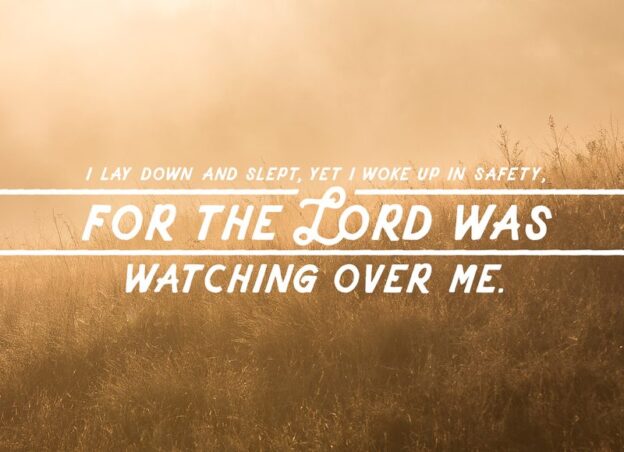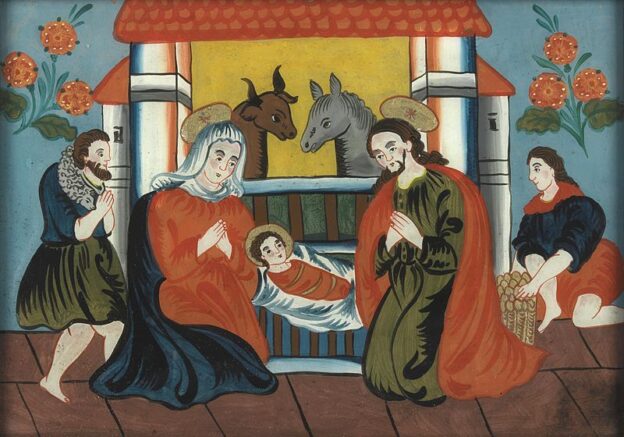One of the prayers I heard a lot growing up was a simple if loaded take on, “thy will be done.” Praying, “thy will be done,” is not only biblical, Jesus himself prayed it in the Garden of Gethsemane, which is a pretty compelling model to follow.
The prayer I heard repeatedly was this: “open and close doors as You see fit.” The desire often comes from a similar place as, “thy will be done.” In other words – “God, you are in control, and we have limited wisdom. We submit to what you will do in our lives.”
Often, peoples’ words show where they land on their perception of God’s sovereignty and human free will. Christians across time have affirmed the all-powerful sovereignty of God; but since early church history, what that sovereignty looks like alongside human free will has been debated. From Augustine and Pelagius to Calvin and Arminius, the nature of God’s power and the nature of free will among creatures has shaped a great deal of Christian thought, and especially later, Protestant thought.
Most of the time, when people pray for God’s will to be done, they’re trying to show that they at least want to want what God wants. Most individual prayers aren’t consciously prayed with an awareness of debates about the role of human free will. People simply don’t know what to do in their lives, and they want to make good decisions or to feel that they’ve got some guidance from God on their choices.
Sometimes circumstances, thoughts, emotions, insights, or supernatural experiences align to affirm in remarkable ways the course an individual should take. But recently a simple series of experiences reminded me how very much we are active in choosing our own course.
Several long months of a grave, undiagnosed illness for my husband led to frustrating hours waiting on “hold” on the phone while I attempted to navigate labyrinths of receptionists, schedulers, insurers, medical assistants, technicians, and record keepers. From one maddeningly slow step to the next, it was extremely difficult to discern when and how much to push, and when and how much to accept. Do we stick with this doctor or go to another? Does radiology need a reminder that we’re waiting for results? Should we be patient or assertive in pushing back with this physician? This is a serious matter, the stakes are high, it’s been dragging out forever: what should we spend our limited energy pursuing?
I decided to push for an appointment at a well-known clinic an hour from where we live. We could continue to pursue diagnostic measures with his usual specialist, but this had been dragging on interminably. At every attempt to schedule an appointment with the well-known clinic, there were obstacles, and they were disheartening.
Insurance needed to pre-authorize the appointment, which meant a recommendation was needed, which meant deciding who to request the recommendation from that would give us the most likely positive response from the insurer. Finally, pre-authorization came. We tried going through a physician’s office to schedule the appointment; miscommunication abounded. When I called to schedule it, the woman on the other end of the line had grabbed up a cancellation two days away; the call got dropped. When I called back, the closest appointment was more than two months away. I cried and put it on the calendar. A few days later I tried again, explaining what had happened. Nothing could be done, she said: try checking for cancellations. A few days later I navigated through the automated menu again; this woman was sympathetic but there was nothing sooner. Try at the beginning of next week, she said. Sometimes patients cancel their appointment that week on Mondays. I called again, early Monday morning. I had lost any clear sense of mental toughness weeks earlier: I called but wasn’t hopeful. Can he come in Friday? she asked. I startled her with my crying – messy crying – as I said thank you. It’s been so long, I said. We’ve been trying to make this happen for weeks.
And then I thought: if I had seen each of those obstacles as a closed door, we wouldn’t have gotten here. Every door was closed: we persisted, through long days, waiting for the mail, leaving messages, listening to awful hold music on speaker.
Open and close doors as You see fit.
I understand the sentiment of the prayer: we want to say we’re submitted to Your will, God. But sometimes that leaves a very specific understanding of the minutiae of God’s will when our branch of the theological family tree also affirms an important reality: prevenient grace, the grace that goes before, the grace that catches things that have been dropped.
We faced closed door after closed door. But obstacles aren’t always indicators of God’s will. If the Apostle Paul had perceived all his challenges as God closing a door, he wouldn’t have undertaken most of his missionary journeys. One could have said, “Paul! Pay attention. You were shipwrecked. Don’t you think God’s trying to tell you something?”
A few months ago, I remember praying for wisdom and guidance in navigating my husband’s health crisis. I came away with a strong impression: worry less about getting it just right. Pay attention. If you pray for guidance and come away with a strong thought in your head – “pay attention” – it’s kind of startling. You want direction; God gives you a directive, two very different things. And yet there was peace in it.
Pay attention.
God, instead of “opening and closing doors,” give us the grace to know when to push and when to be patient. Give us the wisdom to perceive obstacles for what they really are. Give us resilience when we need to keep going and give us serenity when we need to let go. And by your grace, answer the prayers we should have prayed, not always the prayers we think we should pray. Amen.









